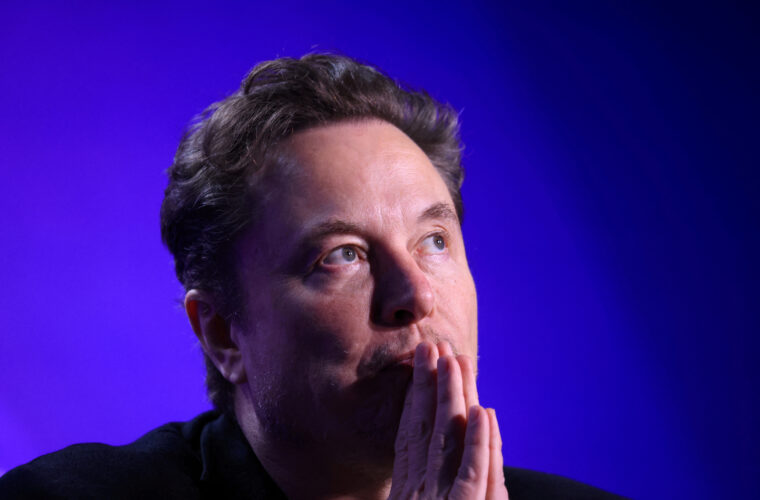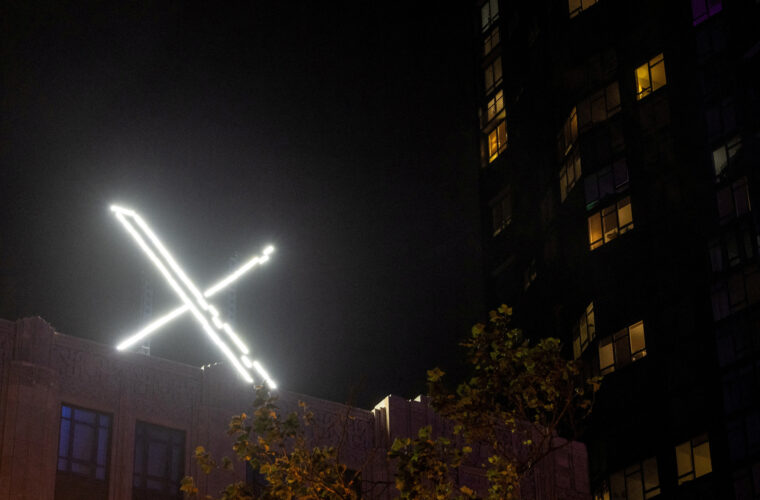Twitter/X, the predictable disaster of a guru who has lost his touch
A perfect disaster. There are no other words to define Twitter’s first year under Elon Musk‘s control, which has characterised the platform by the many changes it has made. First of all, the name change: goodbye Twitter and welcome X, the app for everything. At least, that is how it should have been in the plans of the Tesla and SpaceX boss, who has so far failed in his objective. Musk did, however, make good on the first promise he made when he took over Twitter on 27 October 2022, putting up $44 billion, a figure far above the company’s real value at the time. The watchword was freedom of expression, and so it was, even if this generated a reversal from the essence of the first Twitter.
Since its birth in March 2006, thanks to Jack Dorsey, Biz Stone, Evan Williams and Noah Glass, Twitter has been characterised as the social media of breaking news because it was there that journalists, activists and government officials, but also sportspeople and artists, reported on what was happening in the world. This mechanism rewarded the platform, which became an emblem of reporting and truth, also thanks to the blue checkmark on accounts that indicated real people recognised as trustworthy for their habit of sharing verified news. Twitter was the home of the Arab Spring, as well as of #MeToo and, more generally, of minorities seeking visibility and support.
The overturning of an unrivalled platform
In the space of a year, everything has changed because the allegiance to freedom of expression has turned the system upside down, favouring an increase in disinformation (which was also there before, of course). The sale of the blue checkmark was decisive in this sense, as the need to make money convinced Musk to launch Twitter Blue, later renamed X Premium, guaranteeing account verification to anyone willing to pay for a monthly subscription.
A choice that has changed the platform’s appearance, which has emerged as a promised land for fake profiles that incite discourse with often offensive comments. A side repeatedly shared by Musk himself, who has thus transformed the digital space that for years stood out for its informative content into a den of fake news characterised by the use of insults and pillorying of journalists.
This choice of field has led to inevitable consequences, two of which have greatly damaged the San Francisco-based company. The first is the runaway of advertisers because no brand is willing to pay to be associated with a negatively perceived social media, not least because of the attitude shown by its owner. Over the last thirteen months, much research has been published on the subject, showing that X’s revenues have plummeted more than 50% compared to the pre-Musk era, with cash flow being consistently negative.
Twitter / X
However, something is moving, at least according to the annual report released by Linda Yaccarino, the company’s CEO (chosen by Musk after his followers in a survey launched on his account, another habit with which the big boss puts in public the decisions he is about to take, advised him to rely on someone else for that role), according to which 90 of the former 100 biggest Twitter advertisers have returned to invest in the platform. Lesser in strategic importance but indicative of the trend are also the numbers concerning daily active users, which from October 2022 to October 2023 decreased by 3,7%, taking as valid the 245 million quoted by Yaccarino to The Information.
The second aspect is closely linked to the first and concerns X’s loss of value, with Musk being forced to admit in recent months that the value was less than $20 billion. So well over half of what he had shelled out less than a year earlier. What else to call this masterpiece if not a resounding failure?


X is no longer a reliable social media, Musk’s biggest defeat
However, what penalised X most of all was the loss of reliability in the eyes of users, who, especially in the first months, looked elsewhere for a new Twitter without finding it because the various Mastodon, Bluesky, and Post are niche realities that struggle to attract the masses. A problem that, in theory, Threads, the app launched by Zuckerberg to exploit the Twitter debacle, should not have. Not at least as the Facebook boss hoped, although we will soon see the reactions to the app’s launch in Europe.
The balance sheet of Twitter/X’s first year under Musk’s control punishes the world’s richest entrepreneur most of all because the rebranding has not had the desired results. He has become the platform’s star, his followers continue to grow, and, unlike in the past when his tweets were monitored, he can now freely post whatever comes into his head. Offence and mockery towards more or less well-known users has become his signature style, a way of doing things that, together with many bold choices, has alienated him from a good part of users and insiders. So before acquiring Twitter, Musk was considered an innovation guru for his ability to anticipate the future (as demonstrated with Tesla and SpaceX); now, many no longer trust him.
Chronological order
There are several reasons for this, and the latest, in chronological order, concerns the decision to reactivate suspended accounts for not respecting social media policies in terms of violence, incitement to hatred, racism and disinformation. After the controversial Donald Trump case, it was the turn of Alex Jones, a conspiracist banned from Twitter in 2018 for repeatedly spreading offensive content, with Musk readmitting him to the social media after his followers voted in favour of a poll launched on his account. A course of action that highlights how the platform’s owner makes decisions.
Another much-discussed point concerns the cuts decided by Musk, who, as soon as he arrived at the helm of Twitter, laid off 6,500 employees, reducing the workforce to 1,500 in order to save on management costs. Among the first to be sent home were the communication and advertising staff (leaving a completely unmanned front), as well as the team in charge of managing the social media policy to ease the moderation of content and facilitate freedom of expression, which apparently for Musk also includes the freedom to insult and misinform. Beyond the numbers and the money the South African entrepreneur has to give the banks to honour the loan with which he acquired Twitter, this is Elon Musk’s clearest defeat.



